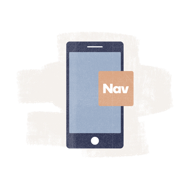In a world where “there’s an app for that” has seemingly become fact, finding the best apps for entrepreneurs may seem like a challenge that requires its very own task team. Fortunately, we did a little research and found some of the latest top small business apps to help you do everything from keep your team organized to handle your business finances.
1. Asana for Task Management
When it comes to task management apps for entrepreneurs, there are plenty of options, but Asana continues to be a true favorite. Sleek in design and simple and intuitive to use, Asana provides users with a solid approach to workflow and task management, particularly for businesses that include both on-premise and remote employees.
In general, Asana allows users to create workspaces, which house projects, which house individual tasks and subtasks. Users can apply due dates, tag task followers, and assign tasks to a specific user. Activity is visible in each project, helping users monitor and track process, making it a solid app for employee accountability. An added bonus is that project can be stored, meaning users can go back and track or review past projects to determine how to manage future projects.
Asana does an excellent job in educating users on the best way to interact with the app. For that reason, the best way to make the most out of Asana is to check out their easy-to-follow tutorials and their generally robust resource center.
Cost: If your team is less than 15 people and you only want access to the basic functions, Asana is free, which makes it a great tool to test drive before using. If you want to unlock more features, plans start at $4.17/per user (5 members) and max out at $8.33/per user after you hit 40+ users.
Task Management Alternatives: Wrike, Zoho Projects, Workfront
2. Xero for Accounting
It’s hard to have a conversation about accounting apps without mentioning Quickbooks, but Xero is up to the challenge. Designed for and predominately used by small business owners, Xero is one of the leading accounting apps for entrepreneurs.
One of the most appealing aspects of Xero is the clear and concise dashboard that helps users overcome the negative stigma (overwhelming) often surrounding the accounting piece of their business. From cashflow and balance updates to unpaid invoices and upcoming expenses, access to the info that matters is one click away. Additionally, users have the ability to prepare W2s and 1099s and export info to tax software.
Accounting often runs hand-in-hand with payroll and human resources. Xero integrates with some of the leading HR and employee management apps, including Gusto and ADP. Integrating these apps with Xero means quick and efficient access to the “bigger picture,” empowering users to maximize usage and make educated decisions about the future of their business.
Cost: Pricing plans range from $9 per month to $70 per month, with access to unlimited invoicing, bill payment, and bank transaction reconciliations.
Alternative Accounting Apps: FreshBooks, Sage One, FreeAgent
3. Sprout Social for Customer Relationship Management
Whether you love social media or despise its very existence, it’s hard to argue that it isn’t a valuable piece of the modern customer relationship. It can also be a confusing piece of the business puzzle. Fortunately, CRM (Customer Relationship Management) apps for entrepreneurs exist, and Sprout Social is great for small businesses.
With simple yet effective tools, Sprout Social lets you create strong customer relationships through Smart Inbox (customer message notification), cataloging customer profiles and contact info, and live activity updates. Additionally, the task management feature will help your marketing team stay organized and accountable.
Sprout Social users can maximize their experience by utilizing it to streamline help tickets through Zendesk and UserVoice, or by making the most of valuable analytics by pairing them with lead management apps like SalesForce.
Cost: After a free 30-day trial, users can opt into the Deluxe edition at $59 a month or the Team membership, which unlocks key features like dedicated account management and advanced keyword listening, for $500 a month (3 users).
CRM Alternatives: Zoho CRM, Pipedrive, NetSuite CRM+
4. OneNote for Note-Taking
With more and more people relying on their laptops, smartphones, and tablets as a means to manage business, note-taking is moving from pen and paper to keys and screens. There are a variety of note-taking apps out there, and though Evernote is consistently a top choice, ever since Microsoft removed premium pricing for functionality (i.e., it’s completely free), OneNote has started to share the space as a favorite.
One of the leading reasons for this jump in ratings is the simplistic and user friendly (some complain about Evernote’s usability factor) organization that is reminiscent of an actual notebook. Users can create specific notebooks sections, compartmentalizing project and topics. Furthermore, accessibility is at an all-time high, allowing users to create, edit, and review notes from any of their devices. Because you can share notes with other users, it’s also great for connecting with other employees or clients.
OneNote is a Microsoft product, which means it seamlessly integrates with other Office apps. Make the most of this free service by utilizing that functionality to incorporate Outlook calendar functions and embed Excel sheets.
Cost: Absolutely free, no matter how many users or what functionality you use.
Alternative Note & Organizational Apps: Wunderlist, Google Keep, Simplenote
5. Slack for Communication
When it comes to workplace complaints, emails and meetings tend to make the list. Employers and employees alike tend to agree that, at times, recent studies have shown that both of those things can take a toll on productivity, Forbes reports. Slack, which promises “team communication for the 21st century,” empowers workers by providing company-wide transparency and giving them access to updates and pertinent information through team conversations.
With conversations broken down into channels, workers can access up-to-date information (including uploaded files) pertaining to various projects, topics, or teams. Adding to the transparency that makes Slack a star among workplace communication apps is the search tool, which allows users to easily look back on past conversations, a feature that isn’t always readily available in similar platforms. As an added bonus, business owners that want to use Slack’s functionality without sharing sensitive information have the ability to create private chats for limited users or reach out to other users one-on-one.
In a user poll, Slack found that those who engaged with the apps experienced a 48.6% drop in emails and a 25% drop in meetings, increasing productivity without sacrificing knowledge sharing. The key to getting similar results is to really harness the full potential of Slack by migrating the bulk of employee conversation to the app and integrating services like Dropbox, GoogleDrive, and Box to bring pertinent information directly into your Slack conversations.
Cost: Slack offers a free, unlimited trial for users that includes things like searchable messages and two-person calls. However, those wishing to upgrade can unlock more features for $8 to $15 per active user per month.
Alternative Communication Apps: Campfire, HipChat, Skype
More answers to pressing questions
Business Credit Cards for Bad Credit
What Is a Good Business Credit Score?
6 Credit Score Hacks Every Business Owner Should Know
How to Shop for a Business Loan Without Hurting Your Credit Scores
This article was originally written on October 4, 2016 and updated on November 1, 2016.


Have at it! We'd love to hear from you and encourage a lively discussion among our users. Please help us keep our site clean and protect yourself. Refrain from posting overtly promotional content, and avoid disclosing personal information such as bank account or phone numbers.
Reviews Disclosure: The responses below are not provided or commissioned by the credit card, financing and service companies that appear on this site. Responses have not been reviewed, approved or otherwise endorsed by the credit card, financing and service companies and it is not their responsibility to ensure all posts and/or questions are answered.